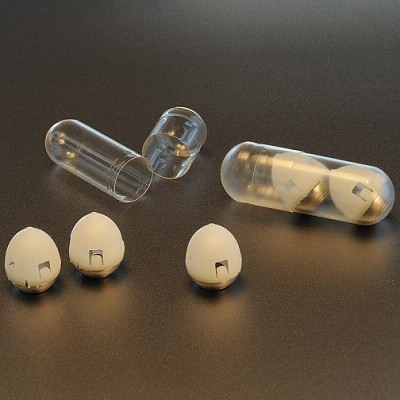
2020-12-14
Visited : 2901
The FDA has accepted Toralgen’s polybile nanopill into its Emerging Technology Program. Getting into the program sets Toralgen up to meet with the FDA’s emerging technology team to resolve potential technical and regulatory issues that could slow the progress of its nanopill.
Indianapolis-based Toralgen is developing a nanoparticle system designed to enable the oral delivery of large molecules such as insulin and GLP-1 to target sites. That core idea of using nanoparticles to enable the oral delivery of large molecules, thereby lessening the burden on patients with diabetes and other conditions, has been around for years without delivering on its promise.
Toralgen thinks its polybile nanopill delivery system can succeed where other oral technologies have failed. The technology consists of nanoparticles made of naturally occurring bile acid polymerized ursodeoxycholic acid (PUDCA). Ursodiol, the soluble form of the bile acid, is FDA approved.
Using PUDCA, Toralgen thinks it can protect large molecules from degradation in the intestine. After running the digestive gauntlet, the vehicles are expected to be taken up by macrophages and moved to sites of inflammation. In preclinical testing, Toralgen has found the therapeutic dose is significantly lower than is required with systemic delivery. Toralgen’s lead program is developing PUDCA for use in diabetes.
Gerald Rea, now CEO of Toralgen, founded the company in 2017 with Yale University’s Tarek Fahmy, Ph.D., and former Keck School of Medicine professor David Horwitz, M.D. Toralgen licensed the nanopill from the Fahmy Labs at Yale.
Rea has since enlisted the support of a pair of Eli Lilly veterans, Dave Moore and Andy Glasebrook. Moore, who spent 27 years at Lilly, took up the chief operating officer post at Toralgen. Glasebrook, a 32-year veteran of Lilly, joined as VP, autoimmune drug development earlier this year. Jung Seok Lee, Ph.D., who worked on the technology with Fahmy at Yale, is director of development.
The team will now benefit from a closer relationship with the FDA. The agency set up the program to address concerns that its lack of familiarity with novel technologies could cause delays. Through the program, FDA reviewers can familiarize themselves with a novel technology before the submission of a regulatory filing, ensuring they are up to speed before they need to assess an application.
Participants in the program have pre-submission face-to-face interactions with FDA staff, enabling them to get answers to technical and regulatory questions during development. The FDA sees early interactions as ways for developers to gather feedback in preparation for regulatory submission.
Read the original article on FiercePharma.